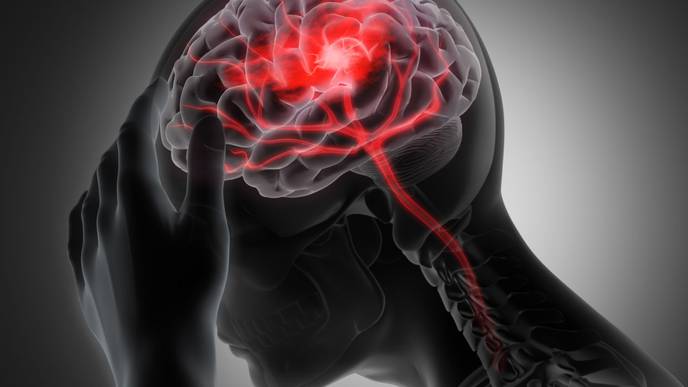Locus Control May Combat the Association Between Stress & Stroke Risk

01/13/2023
Increased locus of control at work and home is associated with a reduced risk for stroke, according to the findings of a case-control study published in JAMA Network Open.
An established and independent risk factor for acute stroke is self-reported psychosocial stress. Although there is an established risk factor between stress and poor outcomes, no effective interventions for preventing stress-associated outcomes have been identified. For the study, researchers sought to assess whether psychosocial stress is associated with an increased risk for acute stroke, and whether locus control is an effect modifier.
They evaluated data from INTERSTROKE, which was an international case-control study of stroke risk that included 32 countries in Asia, North and South Americas, Europe, Australia, the Middle East and Africa. Between 2007 and 2015, 13,462 patients with stroke and 13,488 matched control individuals were recruited in 32 countries. In this analysis, psychosocial stress outcomes were evaluated among the 13,350 individuals with stroke and 13,462 control individuals who had sufficient data.
The individuals with stroke and control individuals were mean age, 62.2 (standard deviation [SD], 13.6) and 61.3 (SD, 13.3) years and 59.6% and 59.6% were men, respectively.
The researchers measured psychosocial stress and occurrence of stressful life events within the preceding year by using a standardized questionnaire of self-reported stress at home and work.
“
[H]igher locus of control is associated with lower risk of stroke and may be an important effect modifier of the risk associated with psychosocial stress.
Among stroke cases, 2745 individuals reported periods of stress or permanent stress. The individuals who reported stressed were younger, more educated, more worked as a professional or skilled laborer, were sedentary at work, consumed alcohol, and had a higher body mass index (BMI) compared with those who were not stressed (all P <.001). Among control individuals, 1933 reported stress and similar trends were observed compared with non-stressed control individuals (all P <.001).
Home stress was associated with increased risk for stroke (odds ratio [OR], 1.95), intracerebral hemorrhage (OR, 2.55), and ischemic stroke (OR, 1.82). Similarly, work stress associated with increased risk for stroke (OR, 2.70), intracerebral hemorrhage (OR, 5.20), and ischemic stroke (OR, 1.85) and life event stressors with higher risk for stroke (OR, 1.17).
Stratified by life stressors, major intrafamily conflict (OR, 1.77), death of a spouse (OR, 1.35), marital separation or divorce (OR, 1.33), and violence (OR, 1.26) increased stroke risk.
Higher locus of control at home was associated with reduced risk for stroke (OR, 0.73).
Among individuals with home stress, greater life control associated with lower stroke risk than low life control (P <.001). A similar pattern was observed for work stress (P =.008).
In subgroup analyses, global stress was not a significant risk factor for ischemic stroke among participants in Africa. The effect of intrafamily conflict and other stressful life events on stroke risk was stronger among men than women. Also, the effects of other stressors and business failure or loss of crop on stroke risk were stronger among individuals younger than 45 years of age compared with other age groups.
The major limitation of this analysis was that stress was self-reported and not objectively assessed.
The researchers noted that the findings of their study suggest that “higher locus of control is associated with lower risk of stroke and may be an important effect modifier of the risk associated with psychosocial stress.”
Additional study is needed into locus control to understand whether it may be a target for public health interventions.
Disclosure: Multiple authors declared affiliations with industry. Please refer to the original article for a full list of disclosures.

Facebook Comments